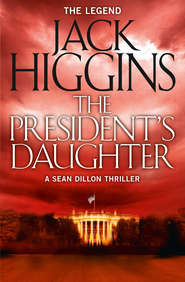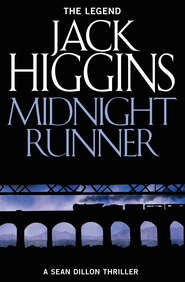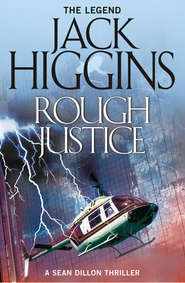По всем вопросам обращайтесь на: info@litportal.ru
(©) 2003-2024.
✖
The Iron Tiger
Автор
Год написания книги
2018
Настройки чтения
Размер шрифта
Высота строк
Поля
‘Then what?’
Drummond shrugged. ‘They saved everything worth having, then burnt the place to the ground and executed a couple of hundred monks.’
‘To encourage the others?’
Drummond nodded and took the Beaver round to the other side of the lake in a graceful curve. ‘Not that it’s done them much good. In areas like this, they only control the towns.’
He took the Beaver down towards the village again and Cheung touched his arm quickly. ‘Is that the signal?’
Three flares, spaced out in a crude triangle, started to burn furiously, plumes of white smoke lifting into the cold air and Drummond nodded.
He throttled back, turned the Beaver into the wind, dropped it neatly down on the firm, sandy shore of the lake and taxied along to the far end.
The women washing clothing in the shallows a few yards away, moved up on the shore, their long woollen shubas tucked into their belts and stood in a tight little group, watching the plane.
Cheung reached for the door handle and Drummond shook his head. ‘Not yet. We’ve got to be sure.’
At that moment, a horseman galloped over the crest of the slope above them and plunged down towards the plane. Drummond switched off the engine and grinned in the sudden silence.
‘There’s our man.’
As he opened the door and jumped to the ground, the rider reined in his small Tibetan horse, dismounted and strode towards them. He was tall and muscular with a deeply-tanned face and high Mongolian cheekbones. He wore a long, wide-sleeved robe and sheepskin shuba which left his chest bare, and knee-length boots of untanned hide. His hair was coiled into plaits and he wore a sheepskin hat.
‘His English isn’t much good,’ Drummond said to Cheung as the Tibetan approached. ‘We’ll use Chinese and for God’s sake treat him with respect. He’s a nobleman. They can be touchy about things like that.’
The Tibetan grinned and held out his hand, and behind him another dozen men rode down to the shore. ‘It is good to see you again, my friend. You have more guns for us?’
Drummond nodded as he shook hands. ‘Your men can unload them as soon as they like. I don’t want to hang around here for any longer than I have to.’
The Tibetan shouted an order and he and Drummond and Cheung moved out of the way. ‘Moro, this is Mr Cheung,’ Drummond said. ‘He’s the Balpur representative of the Chinese National Government, the people who’ve been supplying the guns and ammunition I’ve been flying in to you during the past six months.’
Moro took Cheung’s hand warmly. ‘Before the Lord Buddha brought the way of peace to this land, the Tibetans were warriors. Your guns have helped us prove to the Communists that we can be warriors again. You will take tea with me before you leave?’
Cheung turned to Drummond. ‘Have we time?’
‘I don’t see why not.’ Drummond offered the Tibetan a cigarette. ‘Any Reds in the area recently?’
‘One patrol,’ Moro said. ‘Fifteen men. They turned up a week ago.’
‘What happened?’
The Tibetan grinned. ‘You’ll see when we reach the village.’
They went over the escarpment and walked towards the houses, the Tibetan with the bridle of his horse looped over one arm.
‘Mr Cheung has to make a special report to his government in Formosa about the state of things here,’ Drummond said. ‘He thought he’d like to see for himself.’
‘How strong are the Reds in this area?’ Cheung asked.
‘Their nearest real strength is at a town called Juhma about a hundred miles from here,’ Moro said. ‘Half a regiment of infantry. No more than four hundred men. At larger villages like Hurok which is thirty miles east across the plain, they keep a cavalry troop. Between the villages they are as nothing.’
‘There have been no large scale troop movements, no road building in this area of the border at all?’
‘Not here, but further east towards the Aksai Chin and the Ladakh where they fought the Indians in 1962, they have built many roads.’ The Tibetan looked surprised. ‘Why would they need roads here?’
‘They have claimed Balpur,’ Cheung said simply.
Moro laughed, showing strong white teeth. ‘They have claimed the whole world, is this not so?’
‘They came to the outskirts of the village, a small, mean place, single-storey houses of mud and wattle strung along either side of the single street.
Several children ran forward excitedly and followed them, keeping a respectful distance from Moro who occasionally flicked out with the plaited leather whip that hung from his left wrist as someone moved too close.
They came to a house near the centre of the village that seemed larger than the others and he opened the heavy wooden door and led the way in.
There were no windows and in the half-darkness Drummond was aware of the mud walls, the sheepskins on the floor. On a stone hearth in the centre, a fire of yak dung burned brightly and an old Tibetan woman was crumbling brick tea into a cauldron of boiling water. She added butter and a pinch of salt and the men squatted on a sheepskin beside the fire.
They waited in silence for the tea as ritual demanded. The old woman filled three metal cups and gave them one each. Moro took a sip, nodded in approval and they drank.
It was, as always, curiously refreshing and Drummond held out his cup for more. ‘How are things going generally?’
Moro shrugged. ‘They will not be beaten here, we cannot hope to accomplish so much, but we can keep them occupied, make life difficult.’
‘What about arms?’ Cheung said. ‘You need more?’
‘Always more. We can’t fight them with broadsword and musket.’
‘You were going to tell us about the patrol,’ Drummond reminded him.
Moro nodded and got to his feet. ‘I was forgetting. If you have finished your tea, I will show you now.’
They moved into the street, blinking in the bright, clear morning sunlight and the Tibetan led the way through the crumbling houses, the small tail of children keeping pace with them.
The great wooden gates in the outer wall of the monastery swung crazily from their hinges, half-burnt away and blackened by fire.
They crossed the courtyard beyond, still followed by the children, and mounted the broad steps to the ruin of what had once been one of the most famous seats of learning in Western Tibet.
The doors had disappeared, splintered into matchwood by high explosive shells, and inside bright sunlight streamed down through holes in the roof.
‘There was a library here,’ Drummond told Cheung. ‘It held more than fifteen thousand books and manuscripts, most of them over a thousand years old. The Chinese burned the lot quite deliberately.’
Beyond, in the shadows, something stirred and a kite rose lazily into the air, great ragged black wings brushing the roof beams and Drummond was aware of Cheung’s breath hissing between his teeth sharply.
Disturbed by the bird’s passage, something was swinging to and fro, half-in, half-out of the bright shafts of sunlight cutting down through the darkness.
Drummond moved a little closer. It was a Chinese soldier, swinging by a rope from one of the charred beams, tongue protruding obscenely from the black, swollen face. Where the eyes had been, were only empty, ragged sockets and one ear had been torn off.
As his eyes became accustomed to the half-light, he saw the others, each hanging from a beam, staring blindly into eternity.











